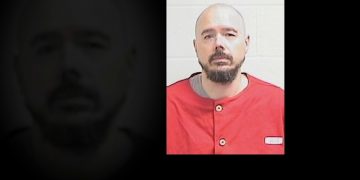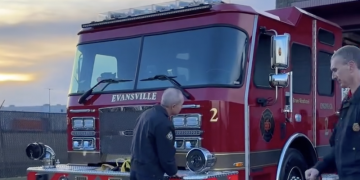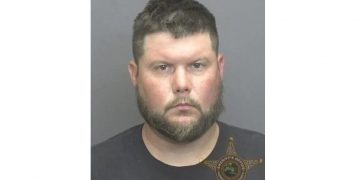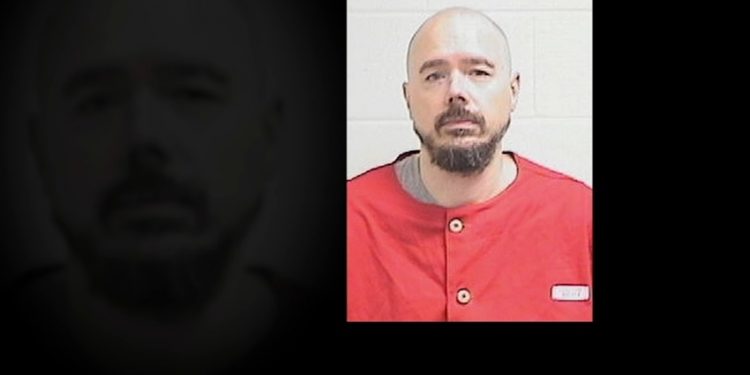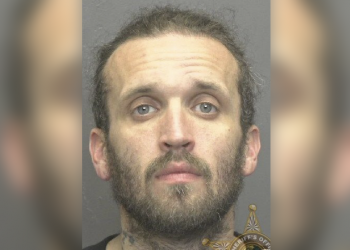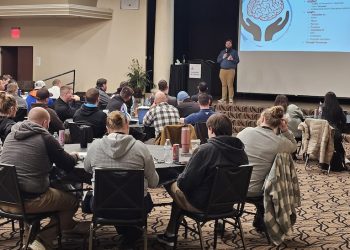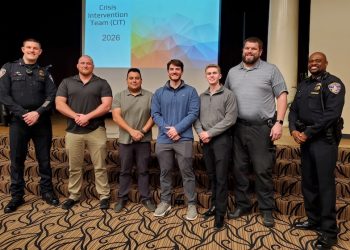Evansville, IN — For the first time in over 15 years, Indiana is set to execute a prisoner, with Joseph Corcoran scheduled to die by lethal injection in the early hours of Wednesday morning. The 49-year-old, who has spent nearly half of his life in the state’s maximum-security prison in Michigan City, was convicted of the 1997 murders of his brother, his sister’s fiancé, and two other victims.
As the execution date approaches, protests have erupted across Indiana, with demonstrators urging Governor Eric Holcomb to intervene and grant a stay of execution. Many argue that Corcoran’s mental health—he has been diagnosed with paranoid schizophrenia—should spare him from the death penalty. His legal team has filed several appeals, including one last weekend, but so far, their efforts have been unsuccessful.
Corcoran’s case has drawn national attention for its complexity. In addition to his conviction for the 1997 murders, Corcoran was previously accused, as a minor, of the deaths of his parents, though he was acquitted in that case. The unresolved nature of his earlier accusations has raised concerns about the fairness of his treatment by the justice system.
The execution is set to take place just after midnight on Wednesday. If carried out, Corcoran will become the first person to be executed in Indiana since 2009. The state had halted executions for years due to difficulties obtaining lethal injection drugs, but in June, Governor Holcomb and Attorney General Todd Rokita announced that they had secured the necessary drugs and would resume executions.
Despite the state’s readiness to proceed with the execution, calls for clemency have intensified in recent weeks. Pastor Anna Lisa Gross, a prominent figure in the protests, has led efforts in Allen County to halt the execution. Gross and others argue that Corcoran’s mental illness renders him unfit for execution, stating that he lacks a full understanding of his crime and punishment.
“We are feeling a small amount of optimism that Governor Holcomb will intervene and decide to grant clemency,” Pastor Gross said. “It’s been encouraging to hear elected officials say all life is sacred, and that includes Corcoran. We’re hoping this will give Holcomb the permission to choose life for this man, who does not understand his crime, does not understand his punishment.”
Governor Holcomb, who is set to leave office at the end of the year, has not publicly commented on the calls for clemency. However, his stance on the death penalty has been clear in the past. Holcomb’s administration announced in June that Indiana had acquired the drugs necessary to resume executions, signaling a return to the practice after a long hiatus.
Governor-elect Mike Braun, who will take office in January, has expressed mixed feelings about the death penalty, acknowledging the moral concerns surrounding it, particularly from religious groups. Braun has not taken a definitive stance on whether he would continue executions, but his comments suggest a more cautious approach.
Legal experts and death penalty analysts have also raised concerns about the secrecy surrounding the execution process. Robert Dunham, a prominent death penalty analyst, pointed out that Indiana has been unusually opaque about the sourcing of its lethal injection drugs and the costs associated with executions. “The public has the absolute right to know what’s going on when the state carries out a punishment like this,” Dunham said. “Indiana’s extreme secrecy and intentionally withholding information suggests there’s something very wrong in what the state is doing.”
As the clock ticks down to Corcoran’s scheduled execution, his attorneys continue to fight for his life, filing additional appeals in an attempt to prevent the execution. The legal battle has cast a spotlight on the ethics and legality of the death penalty, particularly in cases involving mental illness and questionable judicial processes.
Whether Governor Holcomb will intervene in the final hours remains uncertain. As the debate continues, one thing is clear: Corcoran’s case has ignited deep divisions in Indiana, and the outcome of his execution will likely influence the ongoing conversation about the future of the death penalty in the state.
As of now, Corcoran’s execution remains scheduled for Wednesday, but any further developments will be closely watched in the coming days.
